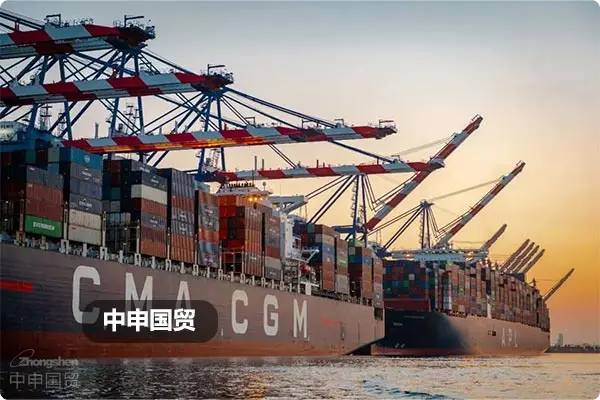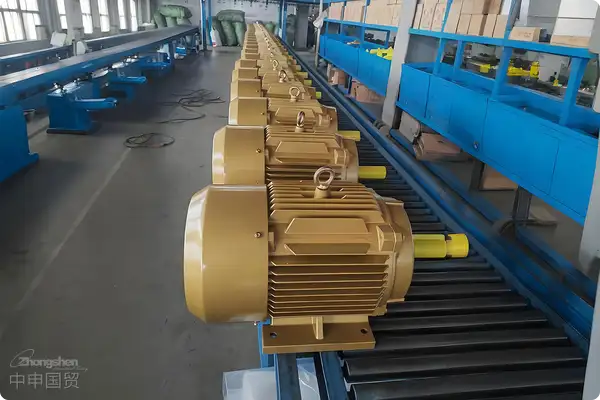- Shanghai Zhongshen International Trade Co., Ltd. - Two decades of trade agency expertise.
- Service Hotline: 139 1787 2118

Engineering Machinery PartsExport RepresentationCore Value
Simplifying Complexity: Professional Management of Export Processes
For many engineering machinery parts manufacturers, export procedures are not their core competency. Handling exports in-house often consumes significant time and effort, with risks of delays or losses due to unfamiliarity with international trade rules. Professional export agencies offer end-to-end services—from target market analysis and export qualification preparation to customs clearance, logistics, and delivery—each handled by specialized teams. Agencies are well-versed in global regulations and standards, providing precise guidance to avoid compliance risks, allowing companies to focus on R&D and production. Outsourcing exports enables companies to efficiently penetrate international markets.
Risk Mitigation: Regulatory Compliance and Market Insights
Exporting engineering machinery parts requires compliance with both export and import country regulations, which are often complex and frequently updated. Export agencies deeply understand these rules, assisting with product compliance reviews and certifications like CE and ISO. They also provide market analysis and competitive intelligence to inform export strategies, avoiding blind market entry. Additionally, agencies resolve export-related issues such as cargo inspections and customs disputes, reducing risks and safeguarding operations.
Market Expansion: Global Resource Integration and Channel Development
Export agencies typically possess extensive international resources and channels, enabling rapid overseas market expansion. They collaborate with logistics providers, customs brokers, and clearance agents to offer efficient solutions. More importantly, agencies leverage their marketing networks and sales channels to promote products to global clients. They participate in international exhibitions and utilize overseas connections to identify partners, building global sales networks for faster and more effective market entry. Partnering with agencies accelerates internationalization.
I. Professional Management of Export Processes
Target Market Analysis: Export agents help enterprises evaluate potential of different markets and select the most suitable target market.
Export qualification preparation: Assist enterprises in obtaining requiredimport and exportoperating rights and registrations.
Product customs clearance: The agency company is familiar with customs clearance procedures, efficiently prepares customs declaration documents, and completes the declaration.
Logistics arrangement: Provide multiple transportation options and arrange end-to-end logistics services from factory to port.
Customs clearance and delivery: Assist enterprises in handling destination country customs clearance procedures and ensure timely delivery of goods.
II. Regulatory Compliance and Market Insights
Product Compliance Review: Ensure adherence to target market standards and technical regulations.
Certification Assistance: Secure international certifications like CE and ISO.
Market Analysis: Provide competitive intelligence and demand trends.
Regulatory Updates: Track policy changes to mitigate export risks.
Risk management: Assist enterprises in handling various issues and disputes during the export process.
III. Global Resource Integration and Channel Development
Global Network: Leverage international resources to expand overseas markets.
Logistics Partners: Establish cooperation with logistics companies, customs brokers, etc., to provide efficient logistics services.
Marketing Promotion: Promote corporate products through trade shows and online marketing.
Channel Development: Assist enterprises in finding partners and establishing overseas sales networks.
Customer Maintenance: Help enterprises build strong relationships with overseas clients.
Summary: Engineering machinery parts export agency plays an indispensable role in the internationalization process of enterprises. It not only simplifies export procedures and reduces export risks but also provides strong support for enterprises to expand into overseas markets. By choosing professional export agency companies, engineering machinery parts enterprises can participate in international trade more efficiently and compliantly, achieving sustainable growth. In the future, with the further development of global trade, the role of export agencies will become increasingly important, serving as a key assistant for more enterprises entering international markets.
Related Recommendations
Category case
Contact Us
Email: service@sh-zhongshen.com
Related Recommendations
Contact via WeChat

? 2025. All Rights Reserved. Shanghai ICP No. 2023007705-2  PSB Record: Shanghai No.31011502009912
PSB Record: Shanghai No.31011502009912








